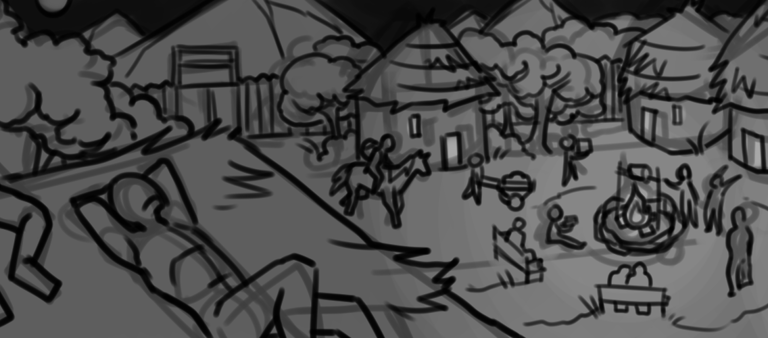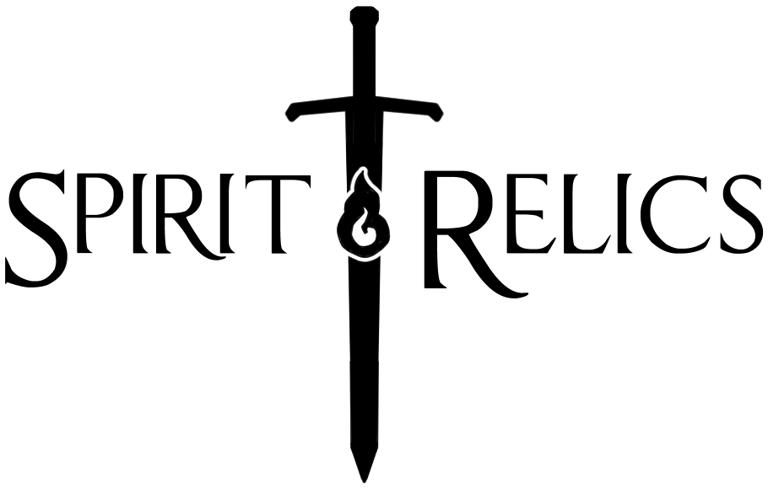

Chapter 7.1 Outposts
Players will be able to create outposts. Outposts are physical landmark structures that can be used to designate towns, trade routes, cities, fields, and/or create guilds. Public Outposts (claimless outposts) are publicly managed groups by rules based on popular vote among members, instead of a founder defining the rules (claimed outposts). Outposts can be linked to a claim to expand a claim, or can remain independent from a claim. NPC will usually only create outposts under the guidance of a Grand NPC, unless they have special traits themselves.
Outpost Functions
Create trade routes
Create communication
Set crime laws
Expand claim controls as an aligned membership
Create new player spawn points
All outpost functions are only accessible by members of an outpost
An outpost itself contains a furnace to be a source of tinder burning for maintenance/upkeep
All outposts contain a community ledger, which includes the following:
Which member did what (constructed/activated construction/completed quest/etc.)
Is filterable
Will show aliases instead of true names if applied
Will not show "hidden" activities from using crime skills (if applicable from world selection, since PVE worlds will have less crime options)
Will show hidden crimes that were caught by witnesses
Outpost constructions (players can add outpost constructions from written crafts or active skills)
Culture skills and skill slots (covered in a future section)
Notifications (History of threats, lack of tinder, etc.)
Claim Outposts
Build an outpost on the existing claim firesource. The claim retains the blue fire, but now can grow to have expanded functions. A Grand NPC can also create their own claim outpost, from which, recruited NPC will have their membership linked.
Public Outposts
Build in the wild by a player or NPC. Can be lit, (and thus turned active,) by a player who doesn't have a claim. Only special (non-grand) NPC can create a public outpost, and in this case, other NPC will not join, but players can, and then build structures to hire, or invite NPC.
Public Outpost Limitations
Public outposts cannot be built too close together by function. If a public outpost is in an outpost's radius, it is an extension of the first placed outpost, but this does not extend the outpost's radius. The outpost must be leveled up to increase the radius, similar to a land, vehicle, and wildlife claim. If the radius of two outposts overlap, the first to expand will take it, so strategically, players who want the utilize the most space of an outpost, should plan to build theirs far enough away from another outpost for the most expansion options.
Public Outpost Attempt
A claim player, attempting to light a public outpost, the blue light of the player's claim fire will attempt to light the outpost, but then fade away. They cannot extend their claim spell.
How to Link Outposts
Once an outpost has tinder, it will be considered active. Players who are not members of a claim, or another outpost can link a membership with an active outpost. To keep a link, outposts need to kept safe, and if they are destroyed for too long, it will need to be rebuilt and links need to be reformed.
Torch Offer
Players at a claim or outpost can set what kind of offer to assign to a torch, lantern, or other mobile means to transport their firesource
This message carries the offer for a trade route, expansion, festival invitations, or other outpost function, or a mix of them
A torch bearer needs to bring the torch to the outpost they wish to give the offer to
A torch bearer can make multiple trips, and make multiple offers to different outposts as long as the fire doesn't go out
There is a cooldown timer to delivering messages to the same outpost, to avoid spam offers
Outpost Response
Members of an outpost then have a time limit to vote on it, needs 60% vote from players, or majority for 2 or less players
NPC cannot vote, unless players use culture skills to allow NPC autonomy and influences
No votes, or not enough votes, means there is no response
Accepted Link Offer message will return immediately to the offer outpost upon acceptance
Declined Link Offer message will return immediately to the offer outpost upon decline
Votes have 8 real life days to respond (week + 1)
Claims and outposts will receive the response posted to their claim outpost or public outpost
A player of the outpost can open a vote to change links at any time, and follow the same voting rules
A "Link Broken" message will appear to any connected outposts if a link has ended by vote, outpost destruction, or inactivity
How to Unlock an Outpost
Players will unlock it after hitting a certain level of any combat or crafting legend, claim or no claim.
Claimed Roles vs Public Roles
Founders at claims are creators of outposts and can edit, review, and remove membership, and assign roles. There are no role designations in public claims. These are self-defined through actions and self or community imposed roles.
Joining a Claim
A member is added if they interact with the outpost, and "Offer Tinder to Join." Players can optionally add tinder as a passerby or active support, without joining as a member. The Outpost will glow blue with runic symbols in your vision if you have successfully joined. It will not glow, and say, "You tried to join, but your claim is elsewhere," if you are already a member of a claim, or outpost.
You can unjoin a claim/outpost at anytime in your core menu, or by interacting with the joined outpost, but you will lose all past rights, access, and ownerships.
Public Outpost Rules and Protections vs Claims
Claims are protected by allowed rules in a radius. This allows only the founder and certain players set by the founder, to be able to build, place items, and so forth. Public outposts are controlled by members in an outpost. Their property and assets are protected from people who are outsiders (non-members).
Creation Personal Protections on a Public Claim
Public outpost players can construct protection wreaths on buildings, vehicles, fields, fences, construction, and livestock, to protect their properties from other outpost members. (Everything within a building/vehicle/field/fence/construction is protected under the one wreath. Protection Wreaths function similar to locks, but links a player to access it and edit the radius as well, without needing a physical item. A player rekindles the building's wreath to maintain all links within an outpost. Players vote on how many protection wreaths each player is allowed to have. The minimum quantity accepted by 60% of votes, will allow the affect to go active. (If this drops, it drops the least valued first.) The options range between 0-30, and unlimited.
Losing Personal Protections in a Public Claim
Using the typical voting rules, a player within an outpost can lose protections if enough members vote for it. All protections additionally are lost if the outpost tinder runs out, and if too much time passes, can also completely reset protection links, as the outpost starts falling into ruin and decay. Links will return to normal if rekindled before the decay timer starts.
Outpost Quests
Players can complete outpost quests, indicated by a bulletin board on the outpost. This levels up an outpost and unlocks more utilities from the outpost scroll/tablet as a written craft. Outpost quests specifically unlock utilities. Players can still create bulletin boards for player/community needs.
Player Prioritization Notes
Players can add quick priority notes to let players know if they need or don't need it, but it doesn't block the quest, it just helps players know what a focus is. Players can see which members voted and what kind for more context by interacting with "more info." Completing a quest unlocks it as a skill for the player.
Default View
# of members say priority need
# of members say would be nice
# of members say not needed
# of members say don't do it
More info shows "Player Truename/Alias" example
Player Truename/Alias said: Would be nice
Outpost Blueprints
Players can unlock outpost constructions separate from an outpost post, After linking to an outpost, they can free roam and unlock through context, or get hints by study at a workstation. Players can construct these as normal, and allows them to create written crafts for themselves or the current outpost community, or to take to their outpost, or other outposts, and add to the community blueprints.
Creating Community Hubs
Eventually, players growing their outposts, and outpost skills, will want traders to visit a trading hub or market, or a visit a guild hall for quests, a community square for festivals, and so forth. This will make room so that players who want to focus on supporting certain locations and buildings can congregate at other places than just the post to interact with messengers.
Activating Community Hubs
When players unlock and construct these hubs, use a torch to link to the appropriate outpost, to the construction hub location. The outpost will now have a sign, that will point messengers, via a quest, to the quest location(s) that they can offer links to. The messenger can then put the link offer at those locations. Many constructions need tinder to function, and their tinder usage and storage is seperate from the outpost, so that players can choose which communities to contribute to. However, if the outpost loses tinder, it loses outpost functions. Some can function as a local hub without one, but may lose buffs.
